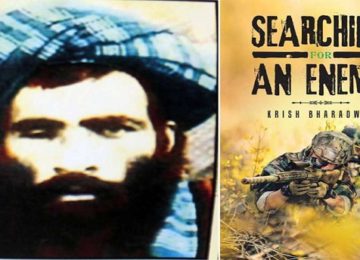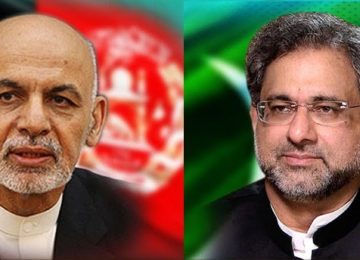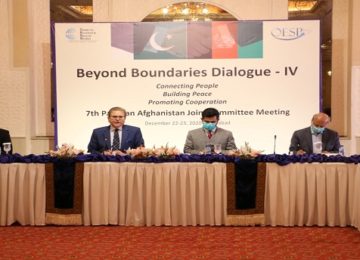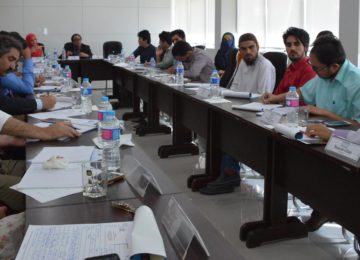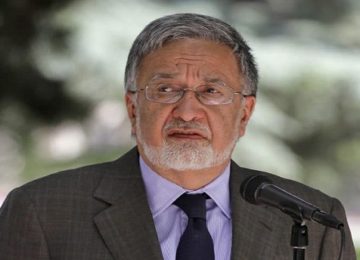February 27, 2019.
To understand the differences between the narratives of Afghanistan and Pakistan, despite their many commonalities, Mr. Juma Khan Sufi, an acclaimed writer and former professor, stated that there is a need to dig out the historical context that where these respective narratives originated from. He was speaking to youth from Pakistan and Afghanistan at Afghan Studies Center’s 21st Pak-Afghan Youth Dialogue in Islamabad on Wednesday, February 26, 2019.
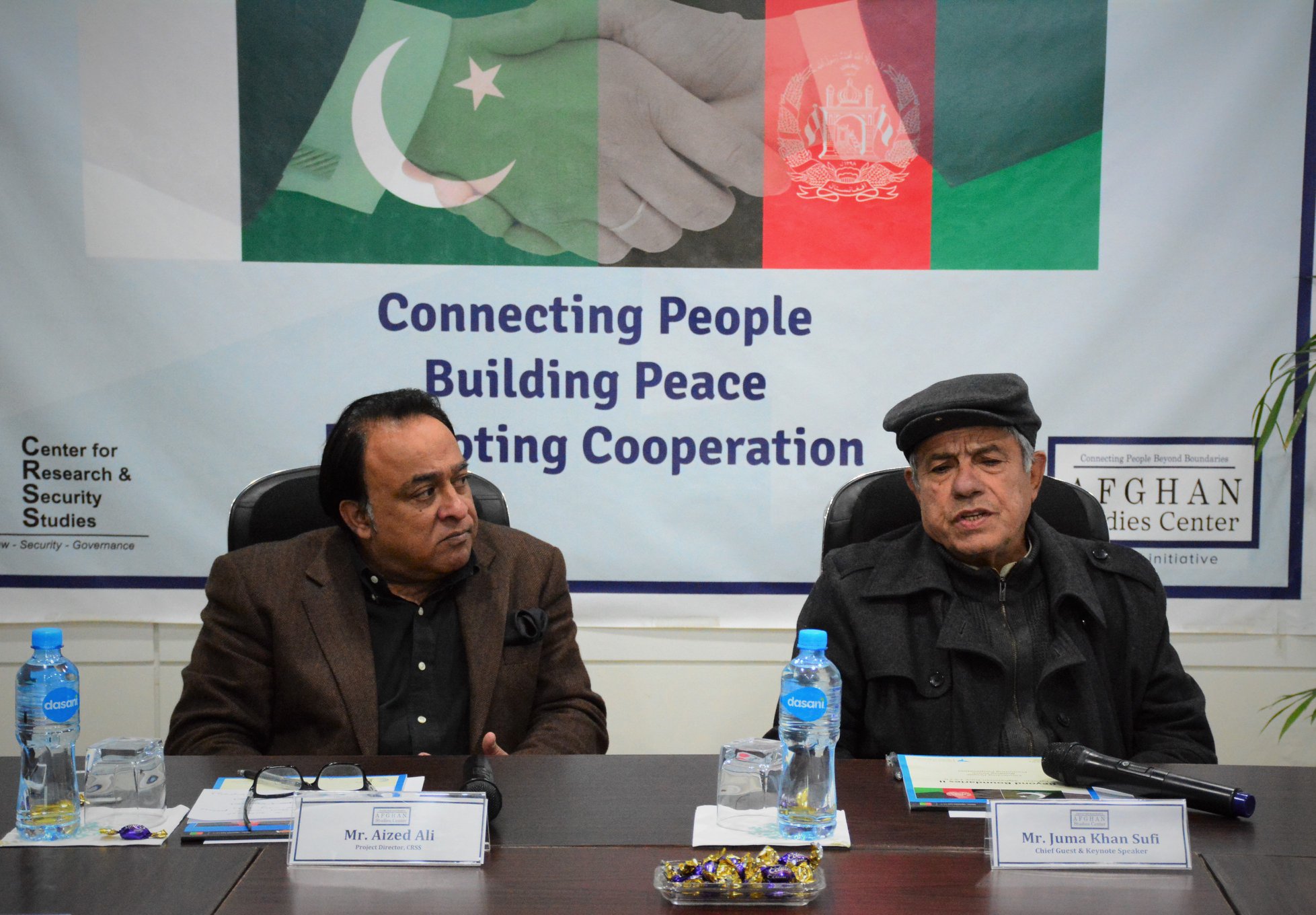
Speaking at length on the respective histories of how these narratives emerged, Juma Khan Sufi stressed that the youth are a free thinking people who, on both sides of the border, can revisit the existing dominant narratives and construct peaceful messages focused on promoting regional development for a stable and prosperous future.
CRSS Project Director Mr. Aized Ali then apprised the participants about the ongoing CRSS Pak-Afghan Track 1.5/II Initiative ‘Beyond Boundaries’ which has so far convened 16 high level meetings between the two Pak-Afghan influencers’ groups, mainly in Kabul and Islamabad, but also in other major cities such as Karachi, Lahore, and Mazar-e-Sharif, to bridge the gulf of mistrust and improve bilateral relations between Pakistan and Afghanistan. He told the participants that the Afghan Studies Center is an idea that emerged from the recommendations of these high-level meetings. The Center aims to provide the youth of both countries a platform to inculcate critical, creative and out of box thinking and to dispassionately interact and exchange ideas as they are tomorrow’s future leaders and ambassadors of peace.
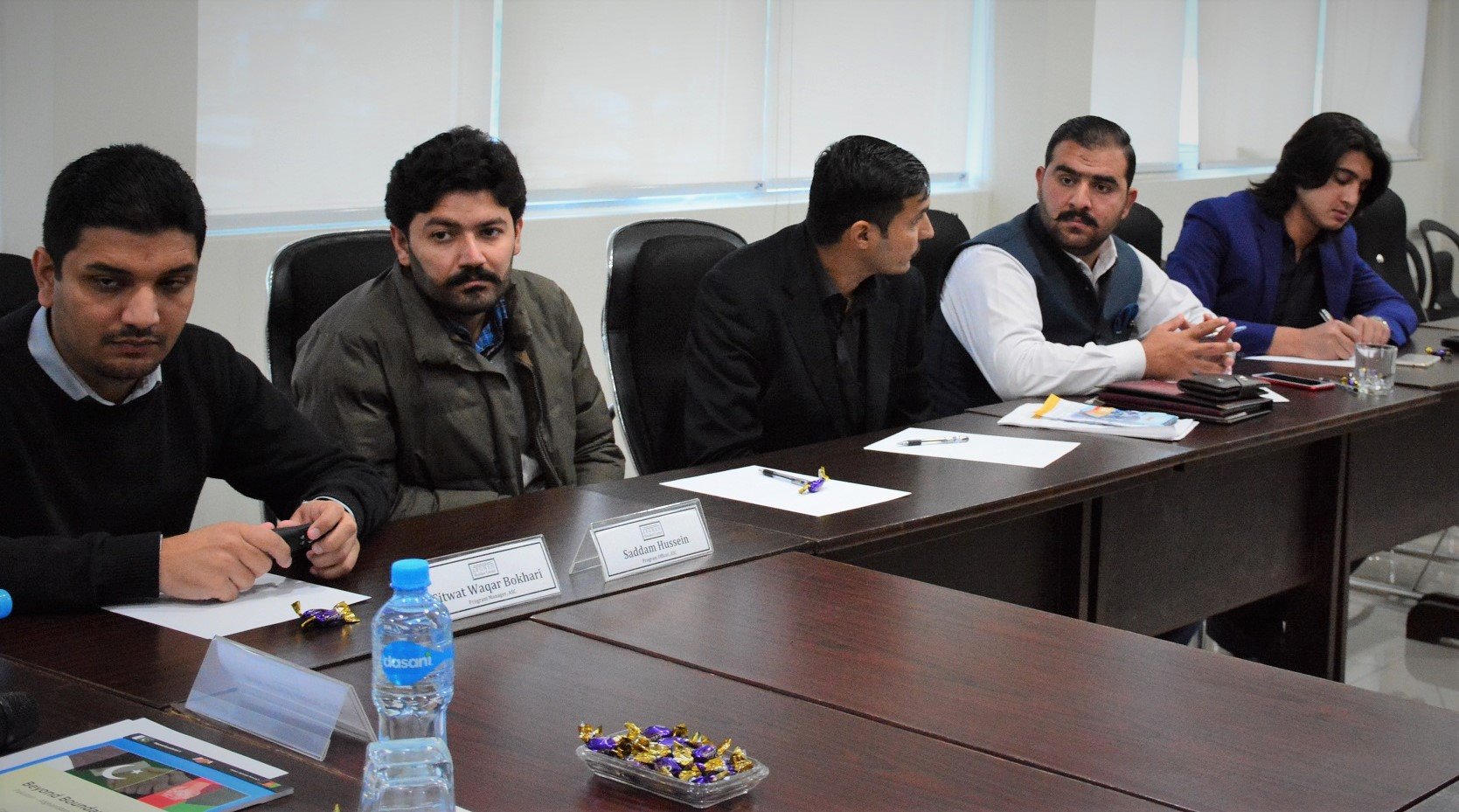
In the Q & A session, participants asked how the existing negative narratives can be changed. To this, Mr. Sufi stated that we have many commonalities between Afghanistan and Pakistan which the two countries can highlight and project to reduce the mistrust. Participants also asked what can be done about the third powers that are involved in creating misunderstandings. In response, he said that when the relations were getting better, the PTM movement was started by certain factions. In response to another participant, Mr. Sufi stated that Pashtuns are found in both Pakistan and Afghanistan, and if the bilateral relationship is improved, the Pashtuns will benefit more from it. Participants included Pakistani and Afghan youth enrolled in universities in Pakistan.
At the end, the ASC team nominated Hidayat-ur-Reham from Pakistan as the Pak-Afghan Youth Ambassador for the month of February 2019, who was then presented a shield by the Chief Guest. Project Director Mr. Aized Ali also presented an honorary shield of appreciation to the Chief Guest Mr. Juma Khan Sufi.
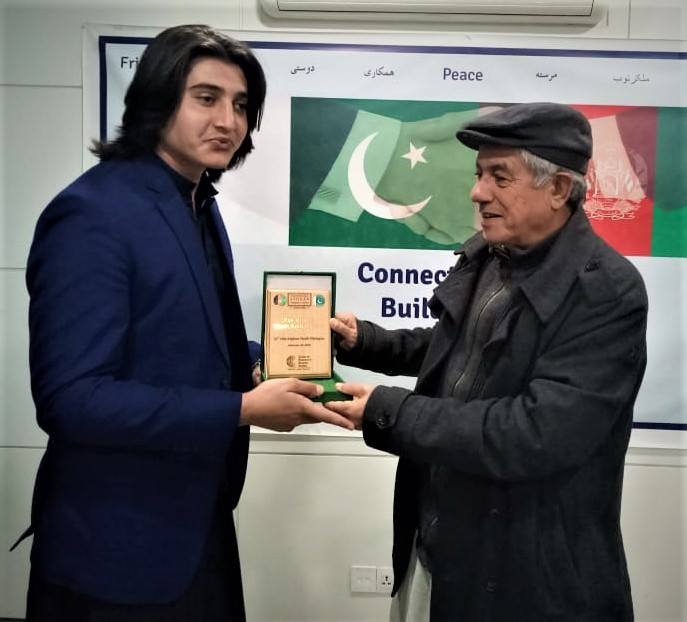
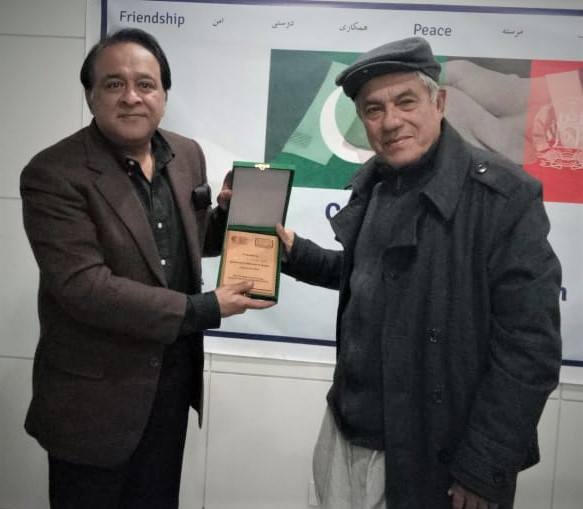
The 21st Pak-Afghan youth dialogue concluded with a group picture. The dialogue was held under the Afghan Studies Center initiative of CRSS which has now an alumni of over 500 Pakistani and Afghan youth. Afghan Studies Center aims at encouraging peace narratives and critical thinking through its monthly Pak-Afghan youth dialogue series, and its quarterly training workshops, which focus on the skill development and capacity building of emerging future leaders from both countries.
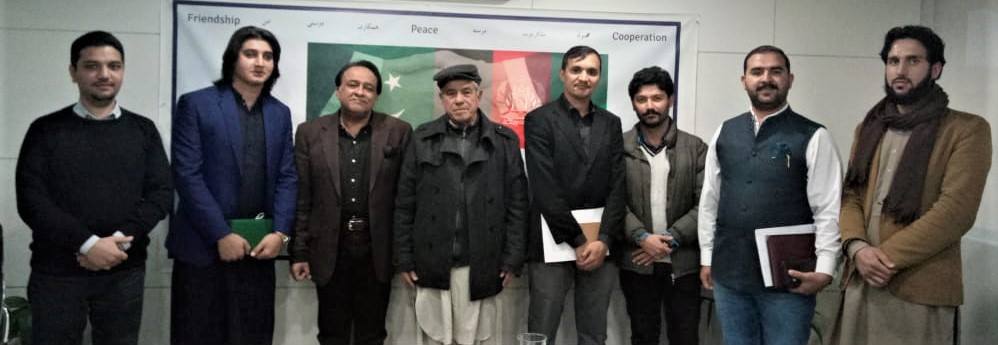
© Center for Research and Security Studies (CRSS) and Afghan Studies Center (ASC), Islamabad.




